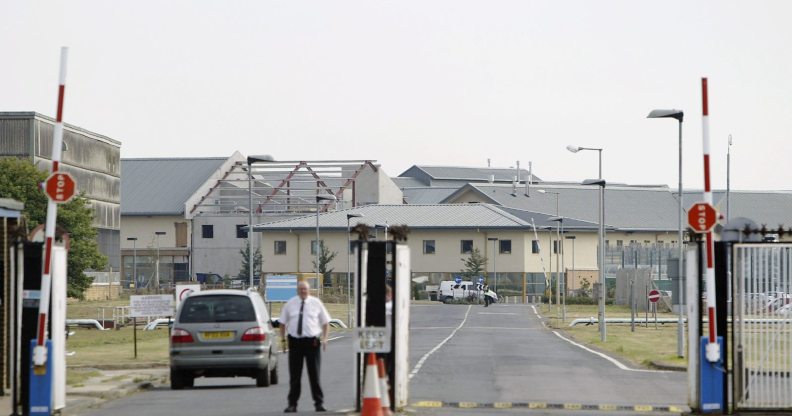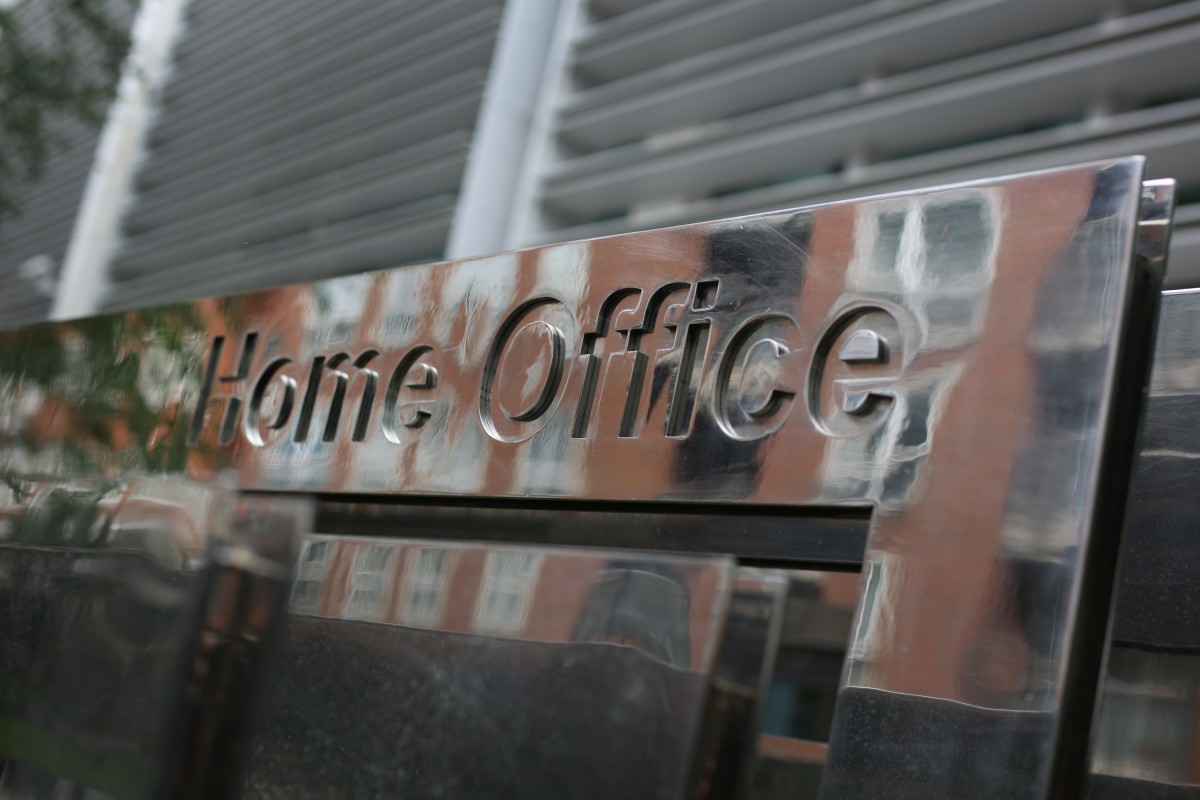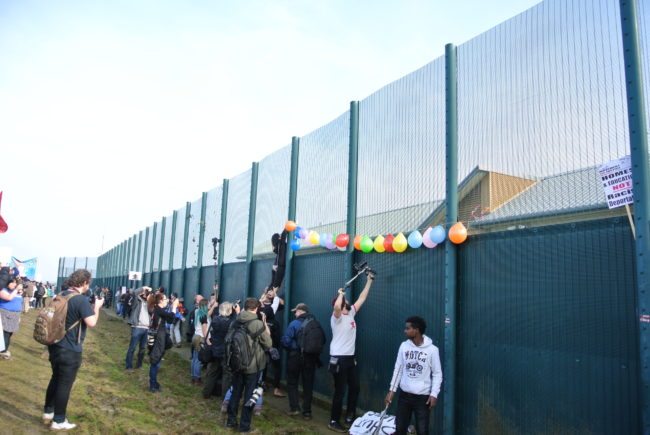Home Office routinely disbelieves LGBT asylum claims, says new report

BEDFORD, ENGLAND – SEPTEMBER 2: A security guard stands at the gates of the The Yarl’s Wood Immigration Center on September 2, 2003 in Bedford, England. The protest is part of the Campaign to Stop Arbitrary Detention at Yarl’s Wood where immigration detainees are held. (Photo by Bryn Lennon/Getty Images)
The Home Office is setting the bar too high for claims by LGBT+ asylum seekers, and continues to subject them to humiliating questioning, according to a new report.
The Still Falling Short publication – released by the UK Lesbian and Gay Immigration Group (UKLGIG) on Thursday – found that Home Office decision-makers are falling short of applying the legal standard required in asylum applications on the grounds of sexuality or gender identity.
It also claimed that the Home Office routinely disbelieves LGBT+ asylum claims, concluding that officials “often place very limited or no weight” on supporting statements from friends and partners for in these cases – and has ignored evidence from LGBT+ organisations.
The latest study found that decision-makers “often considered claims not credible,” where “people had taken risks to pursue relationships.”
This “unreasonable risk taking behaviour,” the report said, cited in Home Office refusal letters, included a claimant protesting when her lesbian partner was harassed by men; an asylum seeker kissing their partner in a street at night in a blackout; and the writing and sending of love letters between women, who lived in different cities.
The report revealed that the Home Office had disregarded some claims where LGBT+ refuges had had relationships in their country of origin.
OUT TODAY: Our new research report finds that Home Office is setting the bar too high for #asylum claims from #LGBTQI+ people
Read #StillFallingShort in full https://t.co/uAE7yioswS
Press release: https://t.co/pa6yPiTasr pic.twitter.com/unzeVmzaO6
— UKLGIG (@UKLGIG) July 12, 2018
In other cases, the research found, the Home Office employs a stereotype that LGBT+ people cannot follow a religion.
One applicant was allegedly told: “You have not provided a reasonable explanation as to why you have continued to practice Islam knowing full well that homosexuality is not permitted in the religion.”
The research was based transcripts of Home Office asylum interviews and letters setting out the reasons for refusing asylum in 48 claims since March 2015.
The 40-page publication concludes: “If this report were to make one overall observation, it would be that the Home Office application of the correct standard of proof is problematic.
“All a claimant must prove is that their account is ‘reasonably likely’ and too often this was not the standard applied.
“The search for corroborative evidence along with fixed expectations about claimants’ behaviour and experiences and routine reliance on delay are indicative of that.”
The publication went on to state that some LGBT+ asylum seekers are still being subjected to degrading and humiliating questioning by Home Office officials, which is “not in line” with asylum policy instruction (API) standards.
In 2014, it was revealed in a leaked report that LGBT+ asylum seekers were being “interrogated” about their sex lives by Home Office officials, which led to a government review of the way these claims are processed.
In an October 2006 Home Office interview, the report revealed: “A gay man was asked how he felt while being massaged in the context of foreplay by his partner, and later how he felt after having had oral sex for the second time.”

The report is critical of the way the Home Office assesses LGBT+ asylum claims. (Getty)
It also noted that, in another interview, a trans woman was asked whether she had had gender affirmation surgery.
Another claimant, the report stated, was referred to as gay in an July 2017 interview, despite saying they were bisexual.
However, the report found that there had been an improvement in the questions asked by Home Office officials, stating: “Persistent questioning directed at sexual practices no longer seems to be an issue in the findings of this study.”
Still, it later added that there were “instances in which claimants’ preferred terminology for their identity wasn’t used and the interviewer neglected to establish an open and reassuring environment in all cases.”

Protestors outside Yarl’s Wood detention centre. (PinkNews)
The report found that some Home Office made assumptions on the about sexual orientation, particularly in women’s asylum claims.
It revealed that one woman’s asylum claim was refused in part because she hadn’t experienced any same-sex attraction until met her first female partner.
Leila Zadeh, executive director of UKLGIG, said: “LGBT+ people are being faced with a range of barriers: refusal if they don’t claim asylum straight away, dismissal of supporting evidence, and humiliating questioning.
“LGBT+ people who have had to flee their homes are often very vulnerable and traumatised. It’s important that the Home Office treats them with dignity and respect and doesn’t imply that they are lying when there is no basis for doing so.
“The Home Office should live up to its own guidance and apply the correct standard of proof, requiring asylum applicants to establish only that it’s reasonably likely that they will be persecuted.”
A Home Office spokesperson said: “This Government has a proud record of providing protection for asylum seekers fleeing persecution because of their sexual orientation or gender identity.
“The UK remains a world leader in its approach to handling asylum claims on the basis of sexual orientation and gender identity. No one who is found to be at risk of persecution on the grounds of sexual orientation will be returned to their country of origin.”

